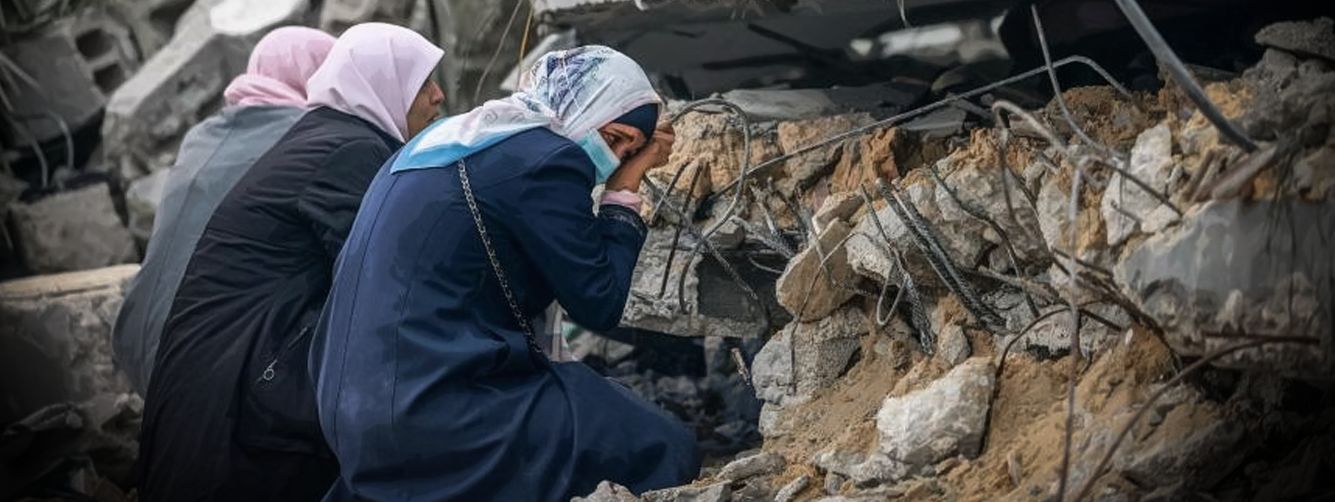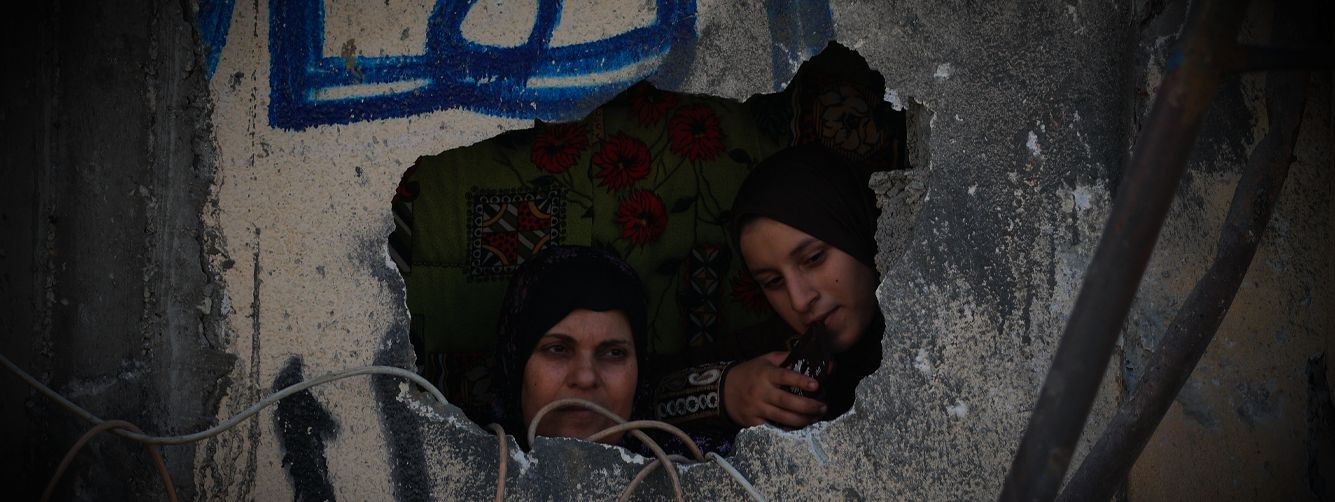GAZA, Palestine, July 30, 2005 (IPC) - - The head of the Authority of Environment Quality (AEQ), Yousef Abu Safiyya, accused Israel of committing atrocities against the environment in the occupied Palestinian territories (oPt). Abu Safiyya said, in a press conference at the International Press Center (IPC) in Gaza City, that the Israeli authorities have been treating the Palestinian territories as a dumpster for their sewage, poisonous waste and that they've turned numerous wildlife areas into landfills.
He added that the Israeli "war" on environment is part of the policies aiming to empty the lands of its indigenous inhabitants, in order to bring in more Jewish immigrants and tip the demographical scale in their favor.
"Israel deliberately destroys infrastructures, roads, arable lands and uproots trees during its aggressions in Palestinian areas. During this Intifada, Israeli forces have uprooted more than two million trees and destroyed one of the best and oldest natural reservations in Palestine; the Um Al Reihan reservation in Jenin," Abu Safiyya told reporters.
The head of the AEQ asserted that Israel has smuggled thousands of metric cubes of wastes into Palestinian territories, disguising them as trade goods, especially paints, mainly through its illegal Israeli settlements in Gaza Strip and the West Bank.
"In the Gush Qatif settlement bloc in Gaza Strip, we monitored one area there where more than 50,000 tons of waste were buried in areas that Israel will be evacuating during the withdrawal from Gaza.
"Two weeks ago, we discovered that Israeli has moved and buried 6,000 tons of toxic waste from heavy industry factories in Israel to the Shofa area in the West Bank," Abu Safiyya revealed.
Speaking about the Israeli plans to ruin Palestinian environment, Abu Safiyya pointed out that the illegal Israeli settlements inside the West Bank have been used as industrial zones, where industries producing hazardous materials and waste that harm the environment have been relocated to the settlements in order to keep them away from the Israeli population, at the expense of Palestinian lives and lands.
He indicated that the settlement of "Burqan" for example has become completely industrial, after moving 60 factories in it. These factories produce iron, plastic, ammunition, smelting and purification of oils, which all produce poisonous waste that has harmed nearby Palestinian population centers in Salfit province.
"The waste polluted weeds growing in nearby valleys, which are the main grazing land for Palestinian cattle, so poison flowed through the food chain to the cattle's milk and meat, so we warned the local population not to feed on milk or meat of cattle grazing there," Abu Safiyya said.
He also accused the Israeli government of deliberately destroying the best tourist location in northern West Bank, as he said that Wadi Qana, which is considered one of the most fertile valleys in Jenin and holds many ancient ruins, has been polluted by the waste produced by the nearby semi-industrial Israeli settlement Emanuel.
Abu Safiyya revealed the shocking fact that factory owners at these settlements have promised the Israeli government and settlers to work only when the direction of wind was towards the Palestinian side, so as not to harm the Israeli communities!
In the Gaza Strip, the head of the Authority of Environment Quality said that an environmental disaster was recorded in the Mawasi area, which is located near the illegal Israeli settlement bloc Gush Qatif.
"There are three sewage collection pools inside Gush Qatif, and one of these pools spilled 15,000 cubic meters onto the arable lands in Mawasi, polluting three main water wells, four greenhouses and spoiling the crops of dozens of dunums of arable lands, which drowned in concentrated sewage water.
"We are yet to determine the level of pollution in that area, as we await samples from the wells there in order to analyze them and determine the level of contamination. The Mawasi area contains one of the largest aquifer water reservoirs in Palestine, and it is near the surface, so this disaster might contaminate a large part of this reservoir," he stated.
Concerning another abuse of Palestinian environment, Abu Safiyya said that Israel is continually drawing sand from the Palestinian territories and depositing it inside Israel, as the sand near Gaza's shores contains high percentage of quartz, which makes it ideal for electronic and glass industries, not to mention being an excellent material for construction.
He further mentioned that up to 1994, Israel has dug up and transferred 25 million cubic meters of sand from Gaza Strip and the West Bank, pointing out that the northern Gaza Strip area is almost depleted and that earth levels has reached to mud areas, depriving that area of the distinct sand character of being aquifer traps.
"Until today, and especially around Israeli settlements, mainly the Kissufim junction in the center of Gaza Strip, almost 600 trucks remove sand from Gaza Strip every day."
Abu Safiyya added that the Palestinian National Authority has requested the help of relative UN agencies in order to put an end to the Israeli violations of international law regarding the environment, but nothing has been made so far to stop it.
"In the water issue, Israel is stealing 95 percent of the Palestinian aquifer reservoir, leaving a meager five percent to the Palestinian. The average Israeli citizen's consumption of water is 300 liters, while the Palestinian's average is the minimum level to sustain life - 60 liters," Abu Safiyya declared.
He demanded the international community to exert more pressure on Israel and force it to stop dumping waste and sewage water in Palestinian territories, lift the blockade on resuming environment-reconstruction projects and afford the costs of removing the waste it already dumped in the Palestinian territories.







